Nature reports
Page 24 of 76 - 753 Results
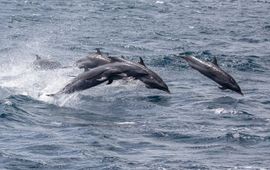
The Yarari Sanctuary is now legally established as a nature park by the Ministry of Agriculture, Nature and Food Quality, representing a significant milestone in marine conservation for the Caribbean region. This nature park..
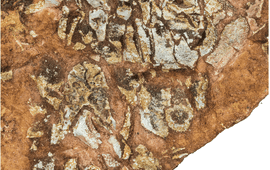
Using X-ray imaging, Naturalis researcher Richard Dearden and colleagues have discovered what the cartilages that surrounded the brain of the 455-million-year-old fish Eriptychius americanus looked like. Dearden's research was..
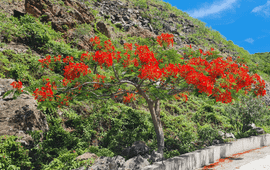
Over the next three years, the Public Entity Saba (PES) will execute a reforestation project to restore wild forests, improve local food production and enhance Saba’s image as a green destination. ..
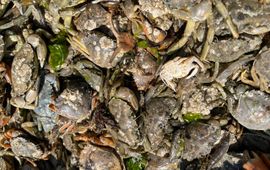
A herring in the North Sea, a crab in the Wadden Sea or an anemone fish on a coral reef, ... biologists like to think in terms of individual species that all have their own place within food webs in ecosystems across the world...
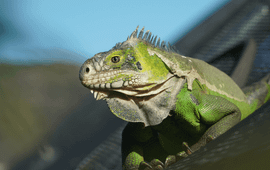
In October, the Dutch government will officially propose to upgrade the Lesser Antillean Iguana from Annex III to Annex II of the Protocol Concerning Specially Protected Areas and Wildlife (SPAW) during the next Conference of the..
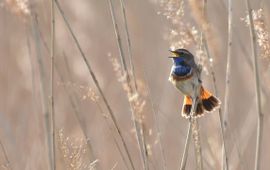
Machine learning, often called 'AI', makes it possible to uncover the mysterious world of animal communication, analysing their sounds that convey so much information. A new project called 'Bioacoustic AI' is going to make this..
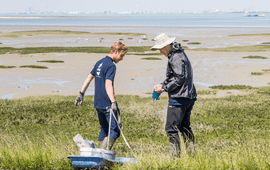
The expected increase in extreme weather could make the bottom of tidal flats more unstable. That's shown by NIOZ researcher Zhengquan Zhou in the PhD thesis he will defend at Utrecht University on September 7th. ..
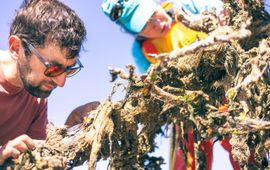
Artificial reefs in the Wadden Sea, made from discarded pear trees, are teeming with marine life after more than a year under water. That's shown in experiments by Jon Dickson, PhD candidate at NIOZ. "After four months, we already..
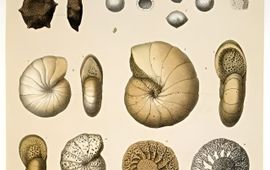
Over the past 500 million years, different single-celled organisms in the oceans have discovered at different times and also under very different conditions how to build a ‘shell’ around their single cell. “Six different..
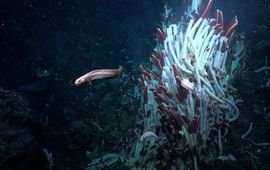
A new ecosystem has been discovered in volcanic caves beneath hydrothermal vents at a well-studied undersea volcano at 2.500 metres below sea level. Using an underwater robot, scientists overturned chunks of volcanic crust,..
